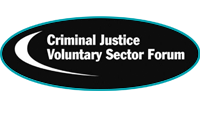19 October 2023
Policy blog: Human Rights Bill’s dignity focus welcome, but more clarity needed on ‘duty bearers’ impact
A comprehensive consultation will be required to ensure not-for-profit social care providers fully understand the implications of the new legislation for their sustainability and resource allocation, writes Jen Goff

Scotland is on the brink of a profound socio-political, cultural and economic shift: the incorporation of human rights into Scots Law. This is not merely about acknowledging that rights exist. Instead, it’s about realising human rights as accessible, applicable and enforceable, for every person in Scotland all of the time.
Context and significance
Some international human rights have already been brought into UK law. These rights have been incorporated in the Human Rights Act 1998 and the Scotland Act 1998. The UN Convention on the Rights of the Child will also be incorporated in Scots law soon. However, the present Human Rights for Scotland Bill answers long-standing calls from Scottish campaigners to include economic, social and cultural rights (ICESCR). It also incorporates the rights of women (CEDAW), disabled people (CRPD) and people from ethnic minority backgrounds (CERD).
The Bill carries profound implications for Scotland’s future. It pledges more than just symbolic support of human rights; its adoption ensures that all legislative and policy decisions undergo human rights scrutiny. Consequently, public bodies will be obliged to prioritise rights in all operations. This will affect everything from how budgets and resources are allocated, to how services are delivered. Crucially, people will be empowered to actively claim their rights, ultimately shaping a society where rights violations are made unacceptable. In this way, the Bill has the potential to transition from acknowledgement that human rights exist, to realising the inherent dignity, respect and fairness every person should be afforded in practice.
In other words, transitioning from acknowledgement to realisation in human rights is like moving from seeing a seed to witnessing a tree in full bloom. Initially, the potential and promise are recognised (acknowledgment). However, only through a process of care and nourishment can a seed grow into a tree that provides tangible shelter and sustenance (realisation).
At CCPS, we understand the profound implications of incorporating human rights and why the third sector needs a voice in the process. Consequently, we took several steps to develop our consultation response,. which you can read here.
We explored potential sectoral impacts by participating in events with experts like the Human Rights Consortium Scotland, Third Sector Human Rights and Equalities and the ALLIANCE Scotland. We grew our internal team and membership’s understanding through an information session led by the Human Rights Consortium Scotland. Additionally, our virtual drop-in and survey offered CCPS members a way of sharing views. Together, these efforts shaped our response, reflecting the perspectives, concerns and hopes of third sector providers.
What we welcome
Our response welcomes the inclusion of the ‘dignity’ principle in the interpretation of rights within the Bill. Recognising the intrinsic worth of every person, especially marginalised groups at heightened risk of rights violations, is a principle that reflects the existential purpose of social care. This proposal therefore not only aligns with the existing commitments and practises of CCPS members, but also paves the way for a culture characterised by empathy, respect and the systemic challenge of inequities.
What needs work
Our response supports a whole systems approach to human rights incorporation. We are nonetheless calling for the Scottish Government to clarify what this means for third sector providers who may become duty bearers. Given the potential implications on sustainability, legalities, procurement, and resource allocation, we’re calling for a comprehensive consultation involving the third sector.
What needs to change
Our response recommends that ‘equalities treaties’ should be termed ‘special protection treaties’, and these should be incorporated in full. In other words, the rights of women, disabled people and people from minority ethnic backgrounds should be acknowledged for the heightened risk of rights violations they face, while their rights must be given due regard and a duty to comply. We also note that Article 19 of CRPD (the right to live independently and be included in the community) is particularly relevant to the realisation of rights via social care.
What’s next
We have reached out to the Scottish Government to extend our support in clarifying what third sector provider’s roles will be within human rights incorporation. Ensuring our membership’s voices are meaningfully included is our priority. That means actively engaging forthcoming incorporation process with third sector resilience at the heart of our work.
Jen Goff is CCPS’s Policy and Projects Officer (National Social Care Resilience and Reform)
Read our consultation response
Further reading
If you would like to learn more about human rights incorporation, check out the following resources.
1. Read
A quick read: Third Force News blog summarising some issues with the Human Rights Bill from a third sector perspective
A plain English read: Together Scotland has produced child-friendly consultation guides, both of which are excellent plain English introductions useful for anyone to read
The Scottish Government’s guide to the human rights bill
The Human Rights Consortium Scotland’s consultation guide
The ALLIANCE Scotland’s consultation response
The Environmental Rights Centre for Scotland consultation guide
The Equality Network’s consultation response
2. Listen
An audio version of the short guide to the Human Rights Bill consultation
A podcast introduction to the human rights bill by the Scottish Human Rights Consortium
3. Watch
A webinar by the Care Inspectorate on human rights and the health and social care standards

